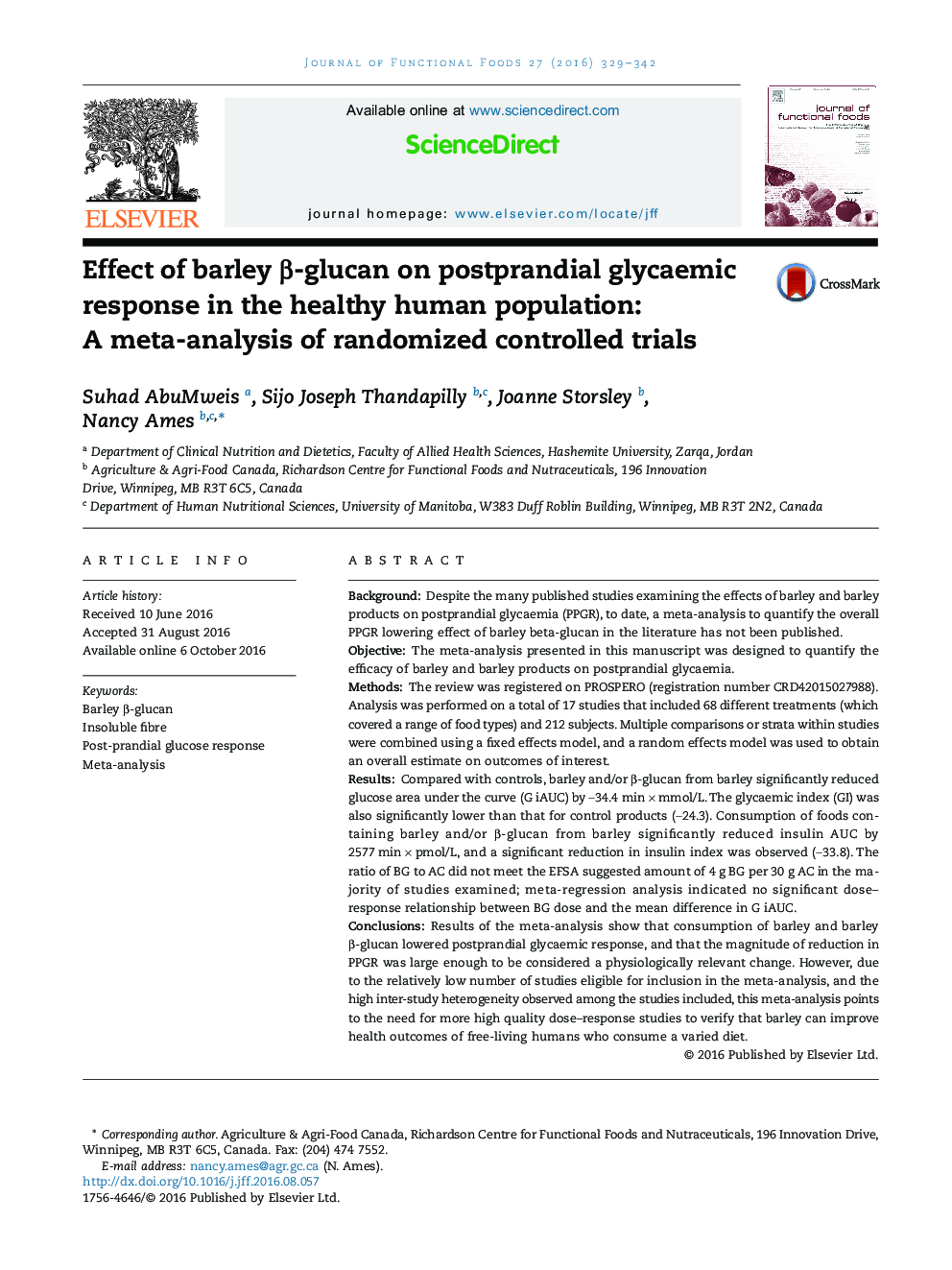| کد مقاله | کد نشریه | سال انتشار | مقاله انگلیسی | نسخه تمام متن |
|---|---|---|---|---|
| 5137462 | 1494539 | 2016 | 14 صفحه PDF | دانلود رایگان |

- The purpose of the current meta-analysis was to quantify the efficacy of barley and barley products on postprandial glycaemia.
- Determine whether the change in glucose response is enough to be considered physiologically relevant according to Health Canada's new guidelines.
- This study identified several areas requiring improvement that should be considered in planning future clinical studies.
- Study outcomes will have a significant impact on human health and nutrition, and help to advance the knowledge of barley as a nutritious cereal grain.
BackgroundDespite the many published studies examining the effects of barley and barley products on postprandial glycaemia (PPGR), to date, a meta-analysis to quantify the overall PPGR lowering effect of barley beta-glucan in the literature has not been published.ObjectiveThe meta-analysis presented in this manuscript was designed to quantify the efficacy of barley and barley products on postprandial glycaemia.MethodsThe review was registered on PROSPERO (registration number CRD42015027988). Analysis was performed on a total of 17 studies that included 68 different treatments (which covered a range of food types) and 212 subjects. Multiple comparisons or strata within studies were combined using a fixed effects model, and a random effects model was used to obtain an overall estimate on outcomes of interest.ResultsCompared with controls, barley and/or β-glucan from barley significantly reduced glucose area under the curve (G iAUC) by â34.4âminâÃâmmol/L. The glycaemic index (GI) was also significantly lower than that for control products (â24.3). Consumption of foods containing barley and/or β-glucan from barley significantly reduced insulin AUC by 2577âminâÃâpmol/L, and a significant reduction in insulin index was observed (â33.8). The ratio of BG to AC did not meet the EFSA suggested amount of 4âg BG per 30âg AC in the majority of studies examined; meta-regression analysis indicated no significant dose-response relationship between BG dose and the mean difference in G iAUC.ConclusionsResults of the meta-analysis show that consumption of barley and barley β-glucan lowered postprandial glycaemic response, and that the magnitude of reduction in PPGR was large enough to be considered a physiologically relevant change. However, due to the relatively low number of studies eligible for inclusion in the meta-analysis, and the high inter-study heterogeneity observed among the studies included, this meta-analysis points to the need for more high quality dose-response studies to verify that barley can improve health outcomes of free-living humans who consume a varied diet.
Journal: Journal of Functional Foods - Volume 27, December 2016, Pages 329-342